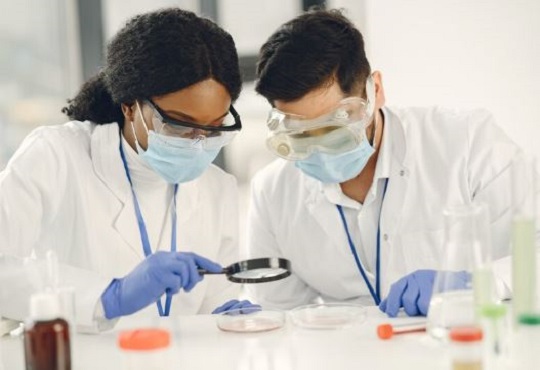Microsoft Unveils AI-Driven Drug Discovery Tool: Satya Nadella
CIOTech Outlook Team | Friday, 11 July 2025, 10:42 IST

- Microsoft’s BioEmu-1 generates thousands of protein structures per hour.
- Helps decode protein motion for faster, smarter drug discovery.
- Offers a scalable, cost-effective alternative to traditional methods.
Microsoft announced an advanced AI system, BioEmu-1, that can speed up drug discovery through protein simulation. Satya Nadella, the Microsoft CEO described its features in a presentation. BioEmu (Biomolecular Emulator-1) is a protein emulator that has the potential to produce thousands of protein structures per hour using just one GPU as a deep learning model.
On his X platform, Nadella mentioned, "Understanding protein motion is essential to understanding biology and advancing drug discovery".
"Today we're introducing BioEmu, an AI system that emulates the structural ensembles proteins adopt, delivering insights in hours that would otherwise require years of simulation", he added.
Also Read: India Seeks Offshore Tech Tie-Ups for Deep-Sea Oil & Hydrogen
Proteins are involved with nearly every biological process, from building muscles to defending against disease. Finding out what due to its amino acid sequence, how much (if any) predictions of how many structures a single protein could take, its practical capacity perhaps up until now.
BioEmu-1 is now providing scientists the ability to visualize the range of structural ensembles of proteins and provide a better understanding of their function. This is important for the creation of better-targeted drugs.
Scientists from AI for Science at Microsoft Research revealed, "BioEmu integrates over 200 milliseconds of molecular dynamics (MD) simulations, static structures, and experimental protein stabilities using novel training algorithms. It captures diverse functional motions --including cryptic pocket formation, local unfolding, and domain rearrangements -- and predicts relative free energies with 1 kcal/mol accuracy compared to millisecond-scale MD and experimental data".
The team of researchers pointed out that BioEmu not only models the structural ensembles, but also retains thermodynamic properties, and is a scalable and cost-efficient alternative to existing molecular dynamics and experimental approaches. This new development is an early win in AI-driven protein science.




